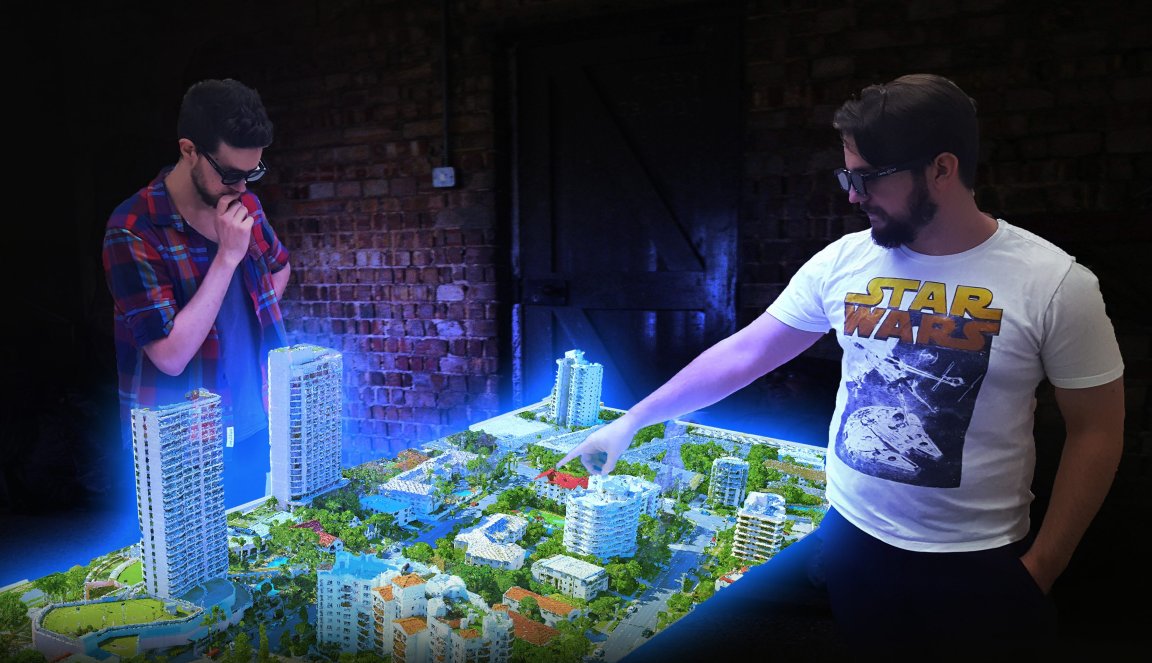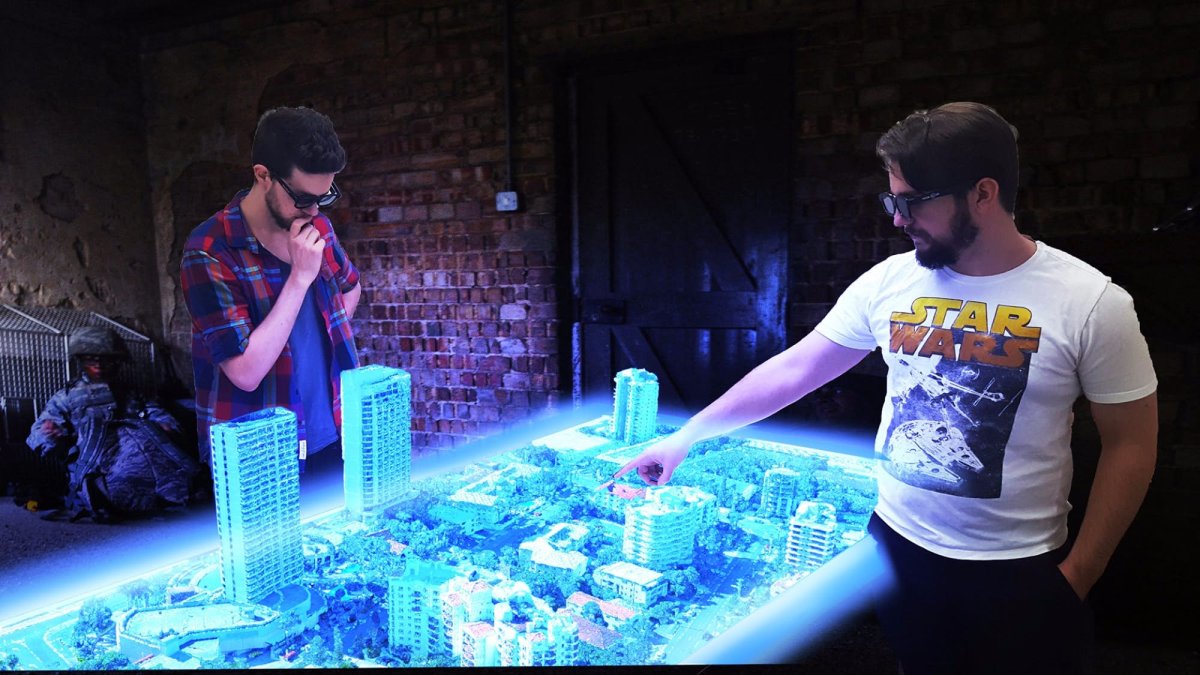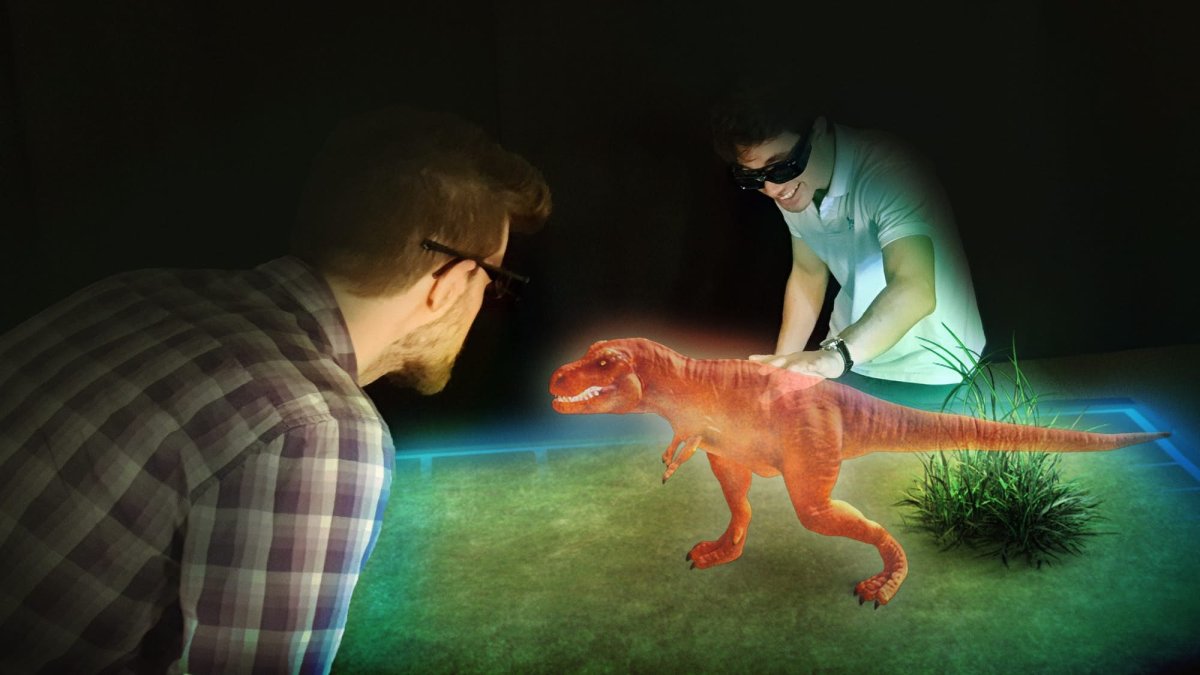
Interactive Holographic Images
A working prototype of what will be the first real multi-user hologram table in the world has been created by the Australian company Euclideon. Wearing only a small pair of glasses, up to four people can interact with the table’s holographic images and each other, making this a major advancement from the experience provided by current AR technology. The company estimates that in 2018, the table will be up for sale for $60,000 Australian.

The concept of the hologram table in film and science fiction is hardly new, but because of the many technical difficulties inherent to executing the concept, the idea has yet to be realized. This difficulty originates from the fact that holograms are computer-generated stereo images, dependent on the perspective of the viewer. When a group of people in different positions look at a hologram, the illusion “breaks” as they don’t get the same perspective on it and it doesn’t change as they move. Computer-generated holograms work by tracking the viewer — but which viewer does the computer track when there’s more than one?
Euclideon has solved this riddle in a world’s first — without a gigantic helmet that no one wants to wear, which is the fatal flaw of many multi-user VR/AR systems. After all, it’s hard to interact with your friends if you’re all inside helmets.
Glasses, Not Helmets
The Unlimited Detail (UD) 3D graphics processing engine is what first brought Euclideon renown in the gaming community. The UD engine made it possible for users to be immersed in huge, amazingly detailed, 3D virtual environments, without special graphics cards or high-end computers. And while it didn’t excel with the dynamic motion of objects or physics, its strength in geospatial imaging forms the basis for the new table.

Euclideon’s table requires that users wear only a small, light pair of motion-trackable glasses, which look and feel a lot like 3D glasses. These are much more practical for meetings and social events than huge VR/AR helmets, not to mention more comfortable. As users wear the glasses, the table tracks their eye positions, building a custom image for a potential total of eight user eyes. The table itself is a screen, and the device is made up of projectors that rest beneath a unique film which is sandwiched between two pieces of glass. The result is a mass of mixed up, colored images that the glasses separate out for users, enabling them to see binocular stereo holograms specific to their location.
The glasses themselves have special crystal film layers over them, which can change the frequencies of light waves. When users wear the glasses, the computer can tell which light waves belong to which users. The glasses have small boxes at the temples which contain tiny microcomputers and microchips similar to the VR headset’s tracking jiggers, signaling the user’s position to the table.
Euclideon is currently about to begin the manufacturing process and expects their tables to be ready in February of 2018.